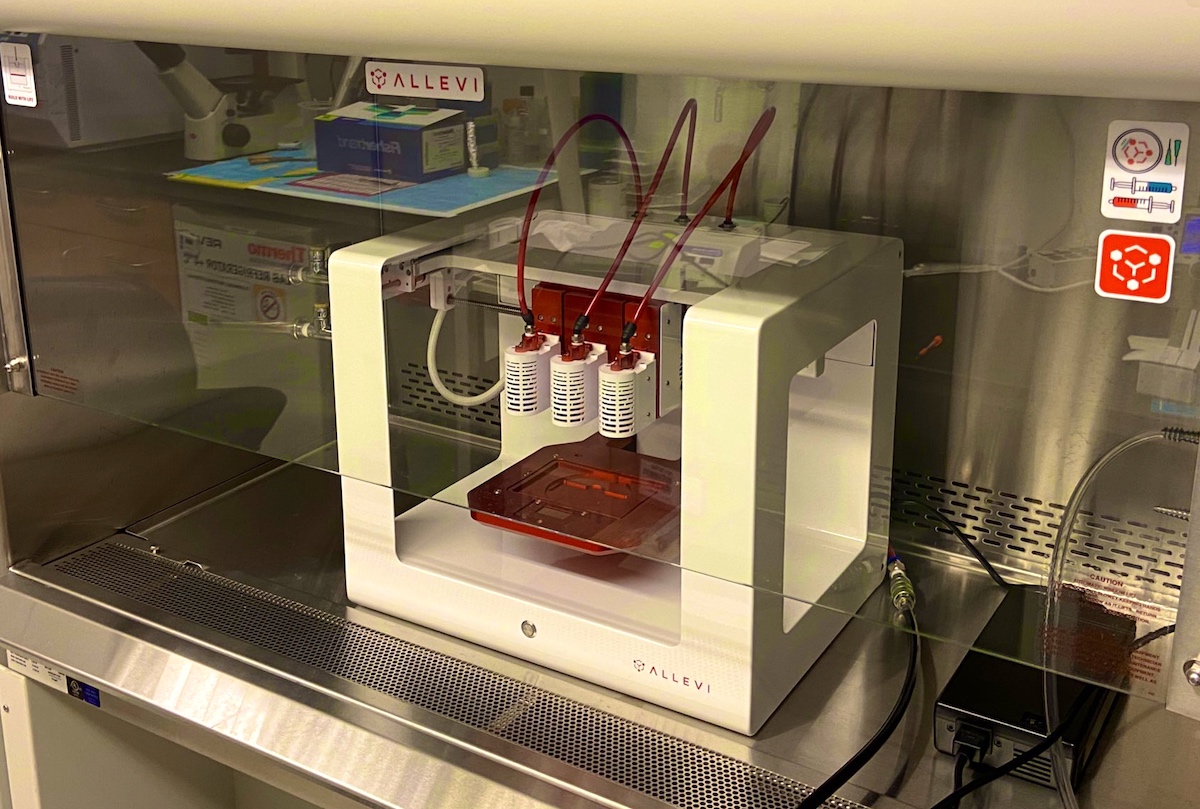Pennovation-based life sciences technology company Allevi is partnering with University City-based biomedical research center The Wistar Institute to use 3D printing to learn about COVID-19.
COVID-19 is an acute respiratory illness and has taken more than 500,000 lives worldwide. Allevi’s patented 3D bioprinting platform will create 3D models of lungs for Wistar scientists to use to study the virus behind COVID-19, SARS-CoV-2, in order to “investigate the mechanisms deployed by this pathogen to infect humans and identify potential ways in which it may be blocked,” according to a press release.
Earlier this month, Wistar announced that it had seen “positive results” from its preclinical testing of a COVID-19 DNA vaccine it developed with Plymouth Meeting’s Inovio Pharmaceuticals.
Allevi VP of Life Sciences Taciana Pereira, who is also co-principal investigator in this plan, is optimistic about the project’s efforts to assist COVID-19 research.
“We are accompanying the spectacular work from our peers in the scientific community and have identified tremendous potential for our platform to enable COVID-19 research in a much faster, yet physiologically relevant manner,” she said in a statement. “We believe that scientists from all areas need to unite now to solve this crisis.”
David B. Weiner, Ph.D. is the executive VP and director of Wistar’s Vaccine & Immunotherapy Center and W.W. Smith Charitable Trust Professor in Cancer Research and will be the project lead. He also leads the group developing the DNA vaccine with Inovio.
“We have been advancing scientific investigations aimed at the treatment and prevention of COVID-19, and we believe that Allevi’s innovative approach is an exciting modality to gain unique insights into the inner workings of the novel coronavirus,” he said.
Since its founding in 2014, Allevi has raised $3.8 million through seven rounds of funding, according to Crunchbase. Allevi was originally known as BioBots, a bioprinting company that began making a stronger push for the software space with its 2017 rebrand. It reports that its technology is used in 350 labs across 40 countries. In May 2019, Allevi was one of 11 companies and leaders to receive a Philadelphia Alliance for Capital and Technologies award for being a top emerging healthcare company.
The Wistar Institute announced in April that it will open an 8,000-square-foot space at 3.0 University Place at 41st and Market streets to support collaboration among STEM researchers, called the Wistar Discovery Center, while maintaining its HQ at 36th and Spruce streets.
Michael Butler is a 2020-2022 corps member for Report for America, an initiative of The Groundtruth Project that pairs young journalists with local newsrooms. This position is supported by the Lenfest Institute for Journalism.Join the conversation!
Find news, events, jobs and people who share your interests on Technical.ly's open community Slack

Philly daily roundup: East Market coworking; Temple's $2.5M engineering donation; WITS spring summit

Philly daily roundup: Jason Bannon leaves Ben Franklin; $26M for narcolepsy treatment; Philly Tech Calendar turns one

Philly daily roundup: Closed hospital into tech hub; Pew State of the City; PHL Open for Business


